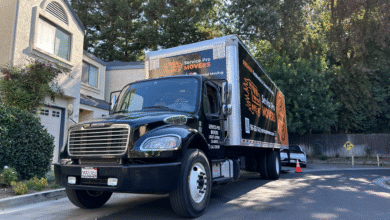Your Ultimate Guide to Stress-Free Moving: Expert Tips That Actually Work

Moving doesn’t have to be overwhelming. With the right planning and strategies, you can turn what feels like chaos into a smooth transition.
Here’s your complete guide to making your next move as painless as possible.
Understanding Moving Stress
Moving ranks among life’s most stressful events. Studies show it can be as emotionally challenging as job loss or divorce. The combination of physical exhaustion, financial pressure, and major life change creates a perfect storm of anxiety.
Your stress response is completely normal. You’re dealing with uncertainty, disrupted routines, and the overwhelming task of relocating your entire life. Many people experience sleep disruption, irritability, and feeling emotionally drained during moves.
Don’t ignore your mental health during this time. If stress becomes unmanageable, consider talking to a psychiatrist orlando fl who can provide coping strategies. Taking care of your emotional well-being is just as important as packing boxes.
Remember that this stress is temporary. Acknowledging these feelings instead of fighting them often helps you move through the process more smoothly.
Start Planning Early
The key to successful moving is time. Begin planning at least 8 weeks before your move date. Create a moving timeline with specific tasks for each week. This prevents last-minute scrambling and reduces stress significantly.
Make a moving binder or digital folder. Keep all moving-related documents in one place. Include quotes, contracts, receipts, and important phone numbers. You’ll thank yourself later when everything is organized and easy to find.
Declutter Before You Pack
Moving is the perfect time to lighten your load. Go through each room systematically. Sort items into four categories: keep, donate, sell, and trash.
Be ruthless with your decisions. If you haven’t used something in over a year, you probably don’t need it. Donate clothes that no longer fit. Sell furniture that won’t work in your new space. The less you move, the less you’ll pay in moving costs.
Consider hosting a garage sale or listing items online. Turn your unwanted belongings into moving money. Every item you don’t pack saves time, space, and effort.
Gather Proper Packing Supplies
Don’t underestimate how many boxes you’ll need. Most people need more than they think. Buy various sizes: small boxes for heavy items like books, medium boxes for general items, and large boxes for lightweight bulky items.
Invest in quality packing tape. Cheap tape fails when you need it most. Get bubble wrap for fragile items. Use packing paper instead of newspaper to avoid ink stains on your belongings.
Collect free boxes from liquor stores, grocery stores, and online marketplaces. Many people give away moving boxes after their moves. Check community boards and social media groups.
Pack Strategically Room by Room
Pack one room at a time. This keeps you organized and makes unpacking easier. Start with rooms you use least, like guest rooms or basements.
Label boxes clearly on multiple sides. Include the destination room and a brief description of contents. Use different colored tape or markers for each room. This helps movers know exactly where everything goes.
Pack heavy items in small boxes. Your back will thank you, and boxes won’t break from too much weight. Fill boxes completely to prevent crushing during transport.
Create an “essentials” box for each room. Pack items you’ll need immediately in your new home. Include basics like toilet paper, phone chargers, medications, and a change of clothes.
Protect Your Valuables
Take photos of valuable items before packing. This helps with insurance claims if damage occurs. Keep receipts and appraisals with your important documents.
Pack jewelry, important documents, and small valuables in a separate box. Carry this box with you personally rather than putting it on the moving truck.
For electronics, use original boxes when possible. If you don’t have them, wrap items in bubble wrap and pack snugly. Take photos of cable connections before disconnecting anything.
Handle the Logistics
Change your address with the postal service at least two weeks before moving. Update your address with banks, credit card companies, subscription services, and employers.
Transfer utilities to your new home. Schedule disconnection at your old place and connection at your new place. Don’t assume services will transfer automatically.
Research your new area ahead of time. Find the nearest grocery store, pharmacy, hospital, and other essential services. This makes your first few days much easier.
Moving Day Success Strategies
Prepare a moving day survival kit. Pack snacks, water, first aid supplies, phone chargers, and basic tools. Keep this kit easily accessible.
Do a final walkthrough with your camera or phone. Document the condition of both your old and new homes. This protects you if disputes arise later.
Stay hydrated and take breaks. Moving is physically demanding. Don’t push yourself to the point of injury or exhaustion.
Keep important documents and valuables with you. Don’t pack these items with household goods. Carry them in your personal vehicle or bag.
Consider Professional Help
Sometimes hiring professionals makes sense. If you’re moving long-distance, have many fragile items, or simply don’t have time to do it yourself, professional movers can be worth the investment.
Get quotes from multiple companies. A reputable local moving company in fort collins co can provide valuable expertise for moves in that area. Compare services, not just prices. The cheapest option isn’t always the best value.
Read reviews and check credentials. Verify the company is licensed and insured. Ask about their damage policy before signing any contracts.
Settling Into Your New Home
Unpack essentials first. Set up your bedroom, bathroom, and kitchen basics on the first day. Having these areas functional makes everything else easier.
Take your time with decorating. Live in your space for a while before making major purchases. You might discover your furniture works differently in the new layout.
Introduce yourself to neighbors. Building good relationships early creates a support network in your new community.
Final Thoughts
Moving successfully requires planning, organization, and flexibility. Start early, stay organized, and don’t be afraid to ask for help when you need it. Remember that some stress is normal, but good preparation minimizes the chaos.
Every move teaches you something new. Keep notes about what worked well and what you’d do differently next time. These insights make future moves even smoother.
With these strategies, your next move can be more organized and less stressful. Take it one step at a time, and before you know it, you’ll be settled into your new home, wondering why you worried so much in the first place.




